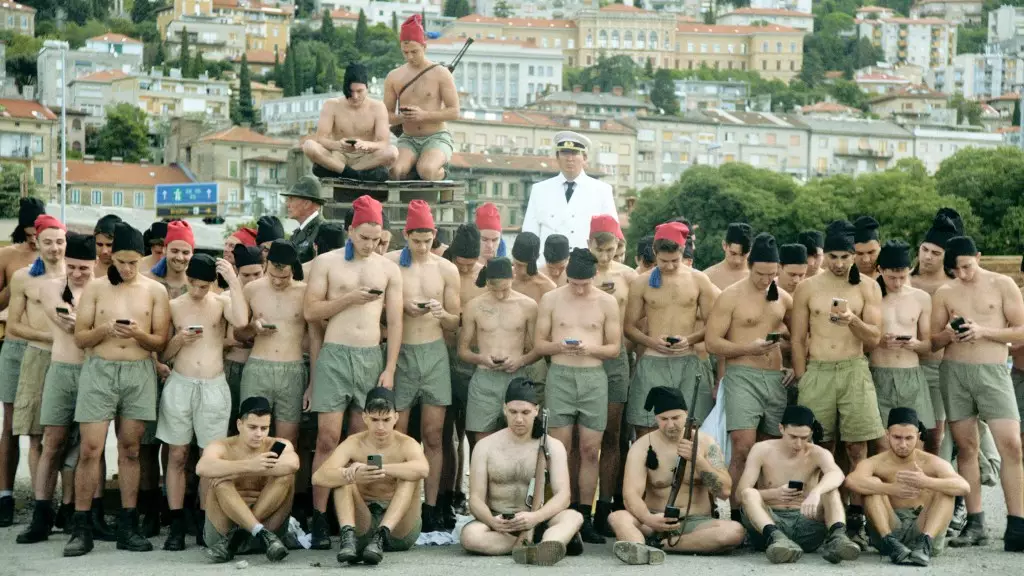The recent International Film Festival Rotterdam (IFFR) showcased an impressive array of films, but one submission stood head and shoulders above the rest: Igor Bezinović’s documentary *Fiume o Morte!*. This film clinched both the prestigious Tiger Award and the FIPRESCI Award, highlighting its significance in contemporary cinema. By explicitly dissecting the controversial and multifaceted legacy of Italian poet and playwright Gabriele D’Annunzio, the documentary bridges the historical with the modern, providing audiences with profound insights into the socio-political dynamics of contemporary Europe.
D’Annunzio’s life and works have been a subject of intrigue and contention. *Fiume o Morte!* underscores his ambition to annex the city of Fiume (known today as Rijeka, Croatia) during the tumultuous period following the First World War. The decision to award Fiume to Yugoslavia at the Paris Peace Conference ignited outrage in D’Annunzio, leading him to orchestrate a daring coup that would resonate through history. The documentary intricately weaves together dramatic reenactments and documentary footage, creating a tapestry that explores D’Annunzio’s motivations, rather than solely portraying him as a nationalist zealot.
Critics and audiences alike have embraced this method, which serves not simply as a historical recounting but as an invitation to reflect on the implications of D’Annunzio’s ideologies in today’s world. The decision of the Tiger Competition Jury—comprising Yuki Aditya, Winnie Lau, Peter Strickland, and Andrea Luka Zimmerman—highlights this modern resonance. They mentioned that the film employs contemporary public spaces and individuals as “co-conspirators” in examining the past, bringing forth significant dialogue on nationalism in today’s fragmented Europe.
The Relevance of Historical Context in Today’s Politics
The film’s examination of nationalism is particularly pertinent in an era marked by rising ultra-nationalism across the continent. By focusing on D’Annunzio’s narrative, *Fiume o Morte!* activates a lens through which we can analyze the potency and allure of nationalist movements in contemporary contexts. It engages with history not as something set in stone but as a continuously evolving narrative, raising compelling questions about identity and belonging in modern society.
The filmmakers intentionally intertwine past and present, indicating that the echoes of D’Annunzio’s endeavors still resound in today’s political climate. Similar to how D’Annunzio’s actions influenced regional identities and national pride, modern leaders often manipulate historical narratives to forge national unity, sometimes at the expense of marginalized groups.
While *Fiume o Morte!* undoubtedly captured attention, it was not the only noteworthy project showcased at the IFFR. The Tiger Special Jury Awards recognized Sammy Baloji’s film essay *L’arbre de l’authenticité*, which investigates the complex historical narratives tied to the Democratic Republic of Congo and its rainforests. This film parallels Bezinović’s in that it explores the intricacies of colonialism and its lingering effects.
Furthermore, Tim Ellrich’s *Im Haus meiner Eltern* takes on a more intimate narrative by focusing on a therapist navigating the demands of work and family. This work adds to the tapestry of reflective cinema at the festival, emphasizing both personal and societal struggles.
The festival also honored Jon Blåhed’s *Raptures*, a gripping narrative that follows a woman entangled in her husband’s dangerous sect. The breadth of themes presented at the festival—from the deeply personal to the grand historical—reflects the power of cinema as a storytelling medium.
A New Era of Cinema
The IFFR serves not just as a platform for new films but as a critical space for discussion about the roles of art and filmmakers in addressing complex social and political issues. The diversity of films and perspectives brought forth illustrates cinema’s ability to offer refuge, provoke thought, and encourage dialogue.
Igor Bezinović’s *Fiume o Morte!* is more than a cinematic achievement; it is an intellectual engagement with history and its contemporary implications. As audiences and critics celebrate its accolades, it is vital to reflect on the messages conveyed through such compelling narratives about nationalism and identity in a world still shaped by our past.
